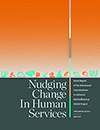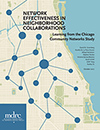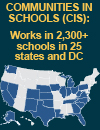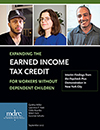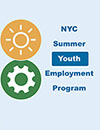Top 10 Releases from MDRC in 2017

In 2017, MDRC released more than 80 reports, briefs, infographics, blog posts, and podcasts on programs affecting low-income Americans in all realms of education and social policy: education from preschool to postsecondary, workforce development, behavioral science, youth development, home visiting, community development, and more.
Here’s a list of 10 of our most popular releases in 2017 — plus a bonus podcast!
The BIAS project tested behavioral interventions in child support, child care, and work support programs with nearly 100,000 low-income clients in eight human services agencies. Each site saw at least one significant, low-cost impact. The findings suggest that small environmental changes can enhance client-agency interactions and expanded behavioral strategies might help strengthen programs and policies.
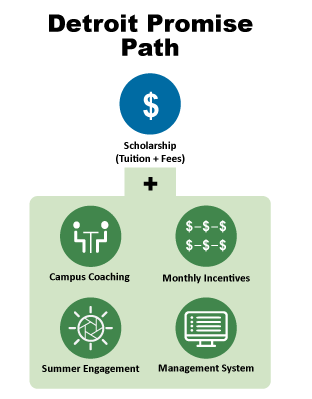 Enhancing Promise Programs to Improve College Access and Success
Enhancing Promise Programs to Improve College Access and Success
The Detroit Promise allows the city’s high school graduates to attend local colleges tuition-free. To that existing scholarship the Detroit Promise Path adds campus coaches, monthly financial support, enhanced summer engagement, and messages informed by behavioral science. Early findings from the first year are positive.
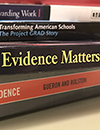 Putting Evidence at the Heart of Making Policy
Putting Evidence at the Heart of Making Policy
Democrats and Republicans agree it is necessary to build evidence concerning the nation’s social programs. But more should be done to improve the nation’s research capabilities, to embed evidence building in government programs, and to put evidence at the heart of making policy.
This report presents findings from the Chicago Community Networks study — one of the most extensive efforts to measure interorganizational partnerships in local neighborhoods. It uses social network analysis and extensive field research to ask how specific patterns of partnership promote better-implemented collaborations that, in turn, can inform public policy.
 The Power of Career and Employer-Focused Training and Education
The Power of Career and Employer-Focused Training and Education
Even in good economic times, workers with limited education may need help getting or regaining a foothold in the job market. Effective career training programs exist. Approaches that target in-demand industries and closely involve employers can get results, benefiting high school students, adults without diplomas, and long-term unemployed workers.
 An Early Look at the Effects of Success Academy Charter Schools
An Early Look at the Effects of Success Academy Charter Schools
Success Academy is a rapidly expanding charter school network in New York City. In this paper, MDRC uses lotteries for the seven Success Academy schools operating during the 2010-2011 school year to estimate the difference in students’ academic achievement caused by Success Academy. For students who were selected through a lottery and then enrolled in a Success Academy school, enrollment had large, positive effects on students’ math achievement in third grade, roughly equivalent in magnitude to between one and one and a half typical years of learning for this age group.
Many students in high-poverty schools face serious challenges such as housing instability and hunger, and the stress in their daily lives can affect their school attendance and performance. CIS aims to address these challenges. This brief describes how the organization has used evaluation findings to enhance and modify its services.
Paycheck Plus offers workers without dependent children an enhanced Earned Income Tax Credit (EITC) worth up to $2,000 per year for three years (four times the current EITC for singles). Results after two years from a random assignment evaluation show that it has increased income and work rates.
Can children’s math skills be strengthened in pre-K and kindergarten, and can such improvements have longer-term effects? This preliminary analysis examines the cumulative effects of two early math programs and demonstrates that this enhanced experience can have modest, positive impacts on children’s math and executive function skills in kindergarten. Updated findings will be released in early 2018.
This report examines the impacts of the nation’s largest summer youth jobs program — New York City’s Summer Youth Employment Program (SYEP) — on young people’s education, employment, and earnings. The analysis uses an experimental design based on SYEP’s randomized lottery application system. The report also describes SYEP’s implementation and participants’ experiences.
Bonus!
 Evidence First Podcast: Sector-Focused Training That Meets the Needs of Job Seekers and Employers
Evidence First Podcast: Sector-Focused Training That Meets the Needs of Job Seekers and Employers
A sector-focused approach to job training can help low-income adults build skills for jobs in high-demand fields with opportunities for career growth. In this podcast, MDRC researcher Richard Hendra offers lessons from WorkAdvance, a skill-building program that works closely with employers to help job seekers prepare for and enter quality jobs.






